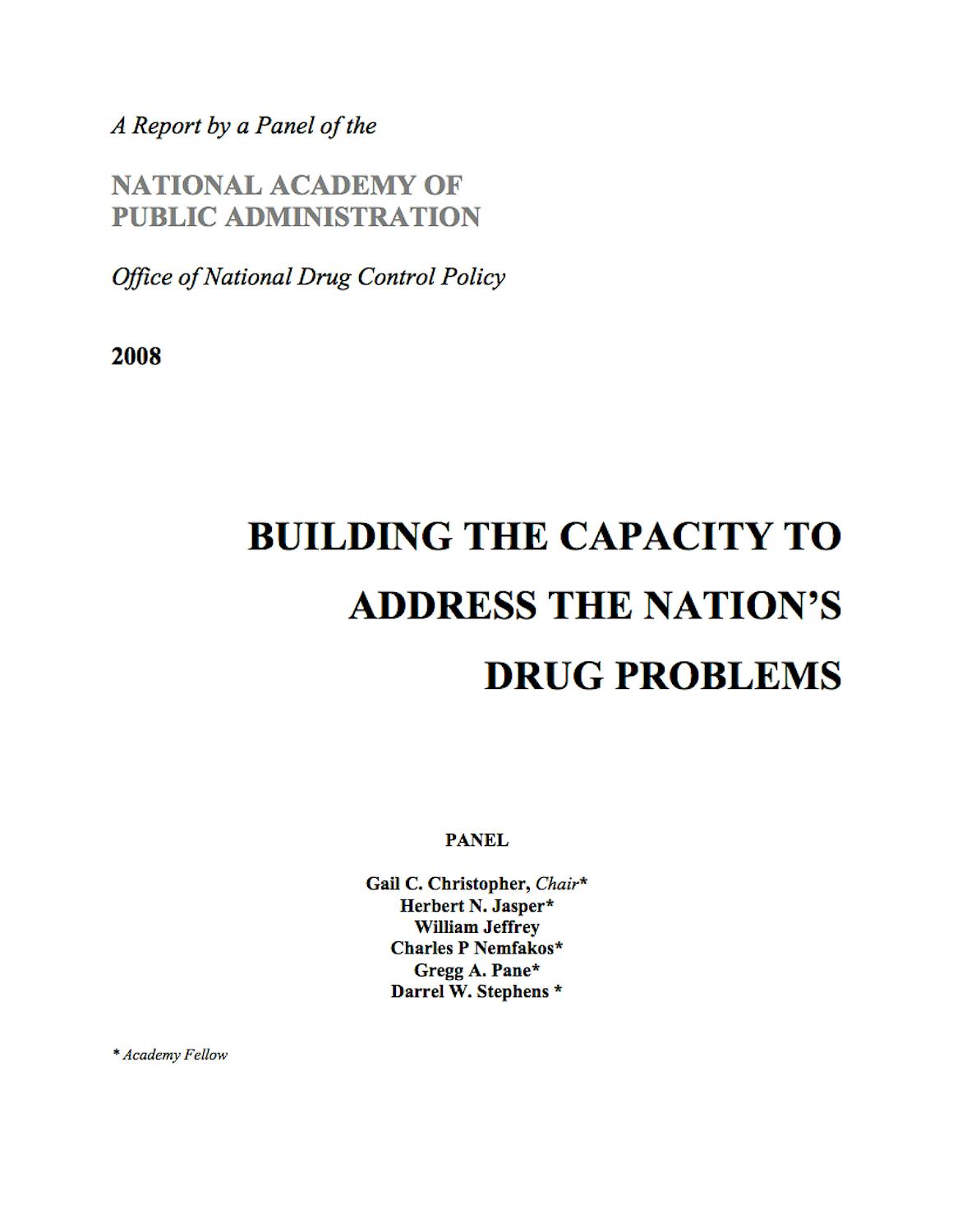
Building the Capacity to Address the Nation's Drug Problems
To assist Office of National Drug Control Policy (ONDCP) in improving its ability to accomplish this critical mission, Congress asked the National Academy to conduct a comprehensive assessment of ONDCP’s management, structure and human capital. The National Academy Panel formed to carry out this project sought input from experts in drug research, prevention, treatment, data collection, community outreach, and law enforcement. More than 135 individuals, including ONDCP’s leadership and staff, partner drug agency representatives, stakeholders, and grantees, were consulted during the course of the study. Since the term “war on drugs” was first coined more than 35 years ago, few matters of national policy have engendered as much controversy regarding strategy and approach. Nor have they required such a broad operational platform across federal, state and local programs and law enforcement agencies. Literally thousands of public and private organizations play important parts in the complex effort to reduce illicit drug use, minimize its negative consequences, and keep these dangerous drugs out of the country and off of America’s streets. Developing an effective strategy to accomplish these goals and coordinating its implementation are the monumental tasks facing the Office of National Drug Control Policy (ONDCP).
Click the button below to view the View Study Report.
View ReportKey Findings
Underlying all of its recommendations is the Panel’s belief that ONDCP’s adoption of a comprehensive approach to multi-year strategic planning, informed by the best data, will help the organization to accomplish its mission. Without such a well-coordinated, well-substantiated vision in place, it is impossible to build supportive relationships around common, articulated goals. The Panel also believes that Congress and ONDCP must take a fresh look at the organization’s approach to budget processes, particularly by increasing transparency and focusing on aspects with the most added value. With simplified, more efficient tools, ONDCP will be in an enhanced position to ensure its priorities receive the necessary support and funding across the federal government. Finally, based on an assessment of ONDCP’s organizational health, the Panel recommends that ONDCP streamline its structure; rebalance its workforce; and reexamine its human capital policies and practices.
In the aggregate, the Panel’s recommendations embody principles, tools, and processes that will maximize ONDCP’s effectiveness under any Administration and any Director, regardless of party or philosophy. If Congress and ONDCP implement these recommendations, ONDCP’s ability to marshal resources to meet the nation’s drug control policy goals will be enhanced, along with its internal organizational and overall mission effectiveness.
Recommendations
Central to the Panel’s recommendations is that ONDCP develop a comprehensive, multi-year approach to strategic planning. The Panel also identified opportunities for ONDCP to streamline its organization; decentralize its management processes; and improve its human capital policies and practices. In addition, the Panel recommended that Congress revise ONDCP’s federal drug control budget responsibilities to reflect its policy and coordination focus and maximize its impact.
